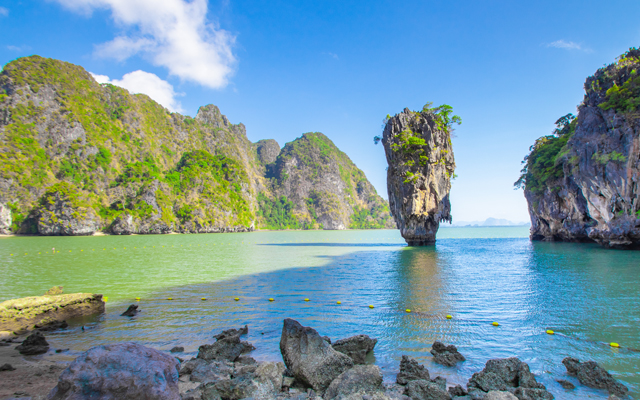Thailand’s battered hotel sector is showing increased signs of fatigue as the global pandemic enters its third year, with more than 73 per cent of new hotel developments in Phuket either dormant or frozen.
According to C9 Hotelworks’ latest Phuket Hotel Market Update 2022, hotel owners are suffering from “fear factor”, as they continue to reel in the wake of a volatile marketplace and unclear future outlook. Negative sentiment and stressed liquidity have impacted development, which has seen an incoming supply of 33 hotels with 8,616 rooms facing an unknown future.

Drilling down on the pipeline data, 55 per cent of hotel projects are mixed-use, or hotel residences with rental-based investment schemes that target individual investment buyers. In light of the economic climate, C9 research indicates that some of these real estate-led hospitality projects are unlikely to return to the pipeline.
A C9 press statement reiterated that Phuket’s visitorship plunged from over nine million passenger arrivals at Phuket International Airport in 2019 to just over 900,000 in 2021.
The sizable 90 per cent decline in arrivals, coupled with 1,786 registered tourism establishments and 92,604 hotel rooms in current supply, mean empty beds that need tourists.
C9 Hotelworks managing director Bill Barnett said: “Over 40 per cent of the island’s international visitors two years ago were either from China or Eastern Europe including Russia. While I’m asked daily about when will Phuket recover, the truth of the matter is we are pushing out our estimates of a cyclical return to 2025.
“The elephant in the room for the moment is China. The conundrum is that while I fully expect Phuket stabilised numbers to return given its favourable geographic location, tourism-oriented infrastructure and demonstrated airlift capacity, macro political and economic issues are clouding the short-term horizon.”
While Phuket has survived the first two years of the pandemic largely intact, Barnett observes a “rapid escalation of hotels coming up for sale” throughout the rest of the year and beyond.
“Most of these are not at highly distressed levels but what it indicates is that legacy investment sentiment in hospitality assets is experiencing a changing of the guard,” he explained.
“The number of Thai hotel owners and also foreign investors that are retreating from the sector is expected to grow. C9’s opinion of the slowdown in the pipeline and high activity in the transaction market is this is not an entirely bad thing, and will likely reframe supply and demand over the medium term in a return to a more solid, rational and less speculative marketplace.”
Barnett identifies two changes impacting hotel developments – one, a wave of conversions of independent properties to brands, as island hotel owners see stronger performance in branded hotels during the Phuket Sandbox reopening and return of domestic travellers; two, conversion of a number of internationally managed properties from management to franchises.
He regards the reality of owners operating under global brands and a new influx of white label management as an approaching trend that was accelerated by the pandemic.
C9 also noted a manpower burden on Phuket’s tourism recovery. The many stops and starts, opening and closings of hotels and businesses in the destination have eroded staff confidence. While business levels have continued to grow at moderate levels, staff shortages continue to plague the industry.




















